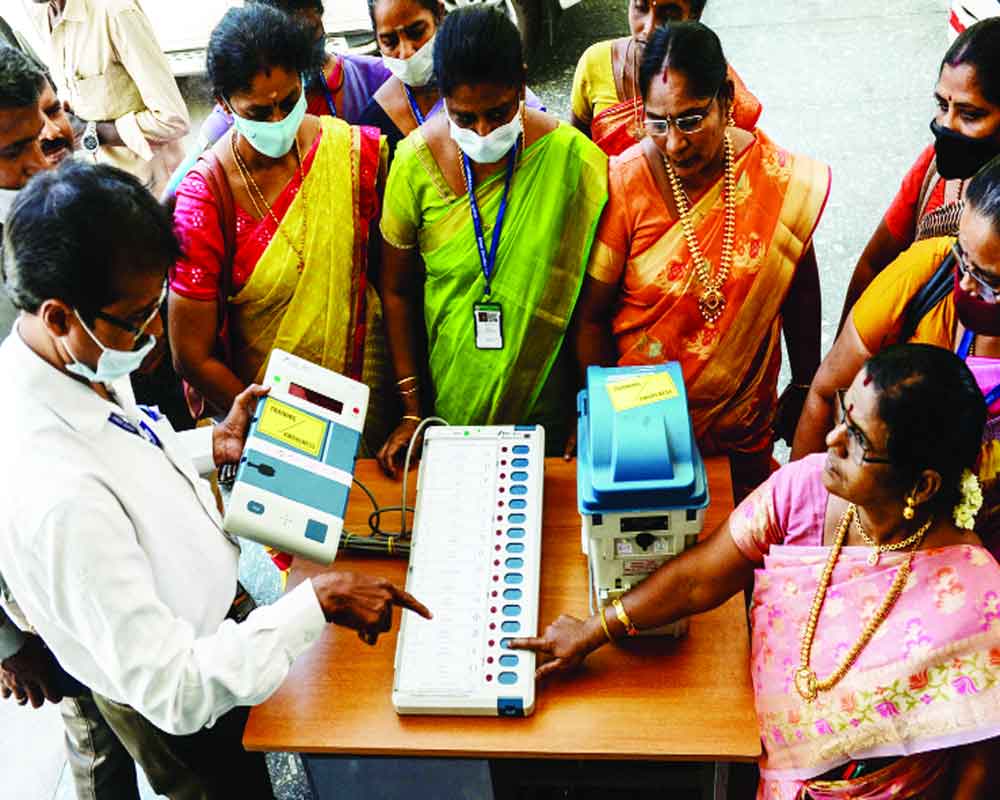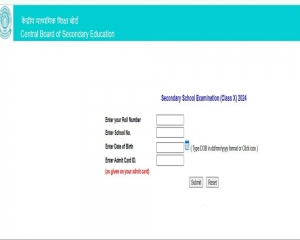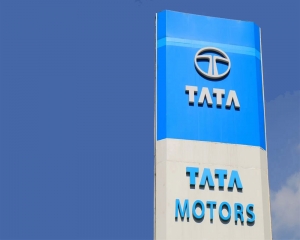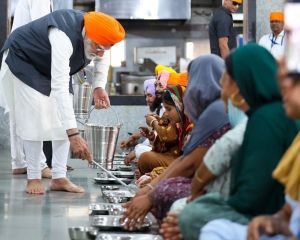The confluence of elections, electioneering and the economy demands meticulous examination and rethinking to make the system work flawlessly
As India goes ahead with its 18th General Elections, the nation finds itself at a crossroads of democracy, economics and governance. The elections, spanning 44 days from April 19 to June 1, are poised to be the lengthiest in Indian history, reflecting both the enormity of the task at hand and the significance of the decisions to be made. Against the backdrop of a burgeoning economy, evolving political landscapes and pressing social challenges, the intersection of elections, electioneering and the economy warrants scrutiny.
The magnitude of election expenditures provides a glimpse into the economic dynamics surrounding the electoral process. According to the Centre for Media Studies (CMS), the anticipated expenditure for the 2024 Lok Sabha elections is staggering, surpassing Rs 1.35 lakh crore. This figure, more than double the amount spent in 2019, indicates to the monumental scale of electoral spending in the world’s largest democracy.
With a projected voter base of 96.6 crore, the per-voter spending is estimated at around Rs 1,400, signifying both the financial investment and the democratic imperative of ensuring widespread participation. However, it’s worth noting that the Election Commission’s expenditure is expected to constitute only a fraction of the total outlay, pointing towards the diverse economic activities spurred by the electoral process.
The Election Commission tirelessly strives to facilitate universal suffrage across the nation. Recognising the pivotal role of public figures in shaping civic consciousness, the Commission enlisted the famed actor Rajkumar Rao as its ‘national icon’ to galvanise youth engagement and voter turnout as the country approaches the general elections. Rao’s portrayal of a dedicated poll officer in the acclaimed film ‘Newton,’ a poignant exploration of electoral challenges in a Naxal-affected region, resonated deeply with young voters. However, despite the cinematic depiction of electoral fervour, the anticipated ‘Newton effect’ has yet to materialise in voting patterns in two phases so far. Nonetheless, the indomitable spirit of election officers persists, as they traverse treacherous terrain and surmount logistical obstacles to ensure the integrity of the electoral process.
Electioneering acts as a catalyst for various sectors of the economy, fostering growth and employment opportunities across the spectrum. From hospitality and transportation to textiles and advertising, the ripple effects of political campaigns are palpable. As political parties vie for voter attention, rallies, events and promotional activities proliferate, injecting vitality into local economies and stimulating demand for goods and services. Moreover, the advent of digital campaigning has revolutionised the electoral landscape, with professional agencies employed to enhance brand visibility and engagement. The economic dividends of such strategies are evident, as digital platforms emerge as potent tools for political communication and mobilisation.
Amidst the fervour of electoral competition, political manifestos serve as blueprints for governance, delineating policy priorities and economic agendas. The contrasting visions articulated by major political parties underscore the divergent approaches to addressing pressing socio-economic challenges.
The Bharatiya Janata Party (BJP), buoyed by its track record and incumbent status, advocates for policy continuity and fiscal consolidation. With Prime Minister Narendra Modi’s emphasis on infrastructure development and economic reforms, a BJP-majority Government is poised to prioritise private investment and fiscal prudence, thereby fostering economic stability and growth.
Conversely, the Indian National Congress or INDI Block champions a progressive agenda focused on job creation, social welfare and agrarian reforms. Proposals such as Government-led employment initiatives, minimum support price guarantees and education loan waivers underpin the Alliance’s commitment to inclusive growth and equitable development.
While political rhetoric often dominates electoral discourse, the economic imperatives transcending partisan lines merit attention. Issues such as water scarcity, climate change and unemployment pose formidable challenges to India’s socio-economic fabric, necessitating concerted action beyond the electoral cycle. The water crisis in cities like Bengaluru serves as a poignant reminder of the urgent need for sustainable resource management and climate resilience. Yet, the conspicuous absence of these issues from political manifestos is very disheartening. There is an urgent need for non-partisan dialogue and policy discourse on environmental sustainability and socio-economic resilience.
As India embarks on its electoral journey, the confluence of elections, electioneering and the economy offers both opportunities and challenges. While the democratic process catalyses economic activity and political discourse, the imperatives of inclusive and sustainable development transcend electoral cycles. By transcending electoral exigencies and embracing a shared vision of progress, India can realise its aspirations for a vibrant democracy and a prosperous future for all.
(The author is Delhi-based senior journalist. Views expressed are personal)


























